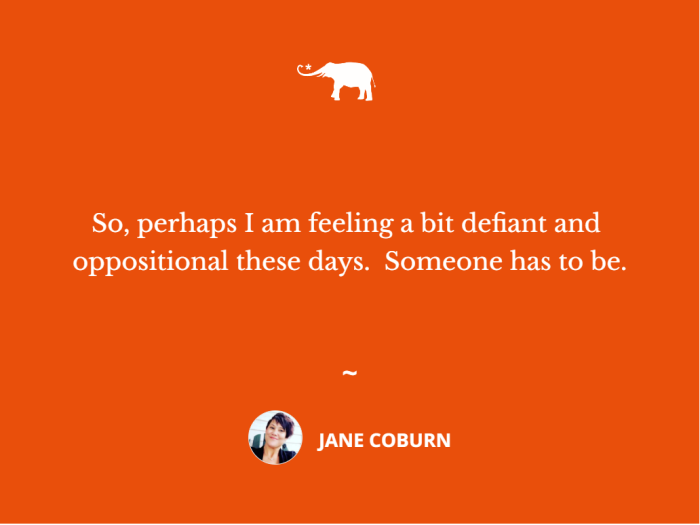My Kid is Not a Dog
When Austin was in sixth grade there was another sixth grade mother who spent a lot of time at school volunteering. I had heard through the grapevine that she was not happy that Austin was fully included in the regular ed class and had expressed this to others. Scholastic Book Fair week was always a source of great joy for us and on the first day of the book fair, I sent Austin off with some money to buy a book. We would be going one evening together, but I wanted him to be able to get at least one book for himself when he visited the book fair with his class. That day after school, Austin came home excited to show me the book he had chosen as well as the book he was told to bring home as a “gift” to me by this other mother who must have been volunteering that day. I opened the bag, and the book was a parenting guide based on dog training techniques. Dog training!
15 years have passed since that moment and I don’t remember the exact title of the book or the name of this woman, but I very clearly remember the way it made me feel. After thanking Austin for his “gift”, I promptly threw the book out when he was not looking. I wish I had thrown the book in that woman’s face and yelled, “My kid is not a dog, asshole!”, but unfortunately, I wasn’t equipped to do that back then. I was still finding my way, still struggling with what I knew my boys needed vs. how society expected me to parent, I was still petrified of people not liking my children, I was not as knowledgeable, not as confident, not as resourced, not as brave as I am today. I had one foot in the “let my boys be themselves” and one foot in the “they need to act neurotypical” camp. I was embarrassed and sad and angry, but I turned that anger inward admonishing myself to be a better mother so that I wouldn’t make any waves. On the outside I seemed confident, but on the inside, I was crumbling.
Today, thinking about this “gift” still makes me angry, but the anger is better placed. Fifteen years have passed and not much has changed. In my work as a Neurodiversity coach and consultant, I come across ableism every day. When are adults going to stop expecting things from children, especially autistic and other neurodiverse children that they can’t even do themselves? I am pretty sure if someone followed me all day with a goal plan I would not be getting a good evaluation. Do you know how many times I have stopped and started a regular exercise routine? Many, many times.
I love to give trainings and I know I am a passionate and dynamic public speaker and yet during these trainings quite a few of the professionals in the room whisper to each other, pass notes, fall asleep, fidget, get up and pace, stand in the back of the room stretching, and scroll on their phones. I get it, I’ve done it, we are human. Maybe they didn’t sleep well the night before, maybe the fluorescent lights are too bright or there are distracting noises, maybe they have a bad back or their foot has fallen asleep, maybe they listen better standing or pacing, maybe they have a pile of work to get done and their boss is making them sit and listen to me, maybe they skipped breakfast and all they can think about is when they will eat. These professionals get to do all these things while I am teaching and yet many of them are reasons used to shame kids, to send them home or to the principal, to put them on a behavioral plan they will never achieve because it is not based on what the child’s behavior is actually expressing.
All behavior is communication. If you slow down, get curious, and listen to the autistic person you might just figure out how to support them. I learn so much from autistic adults who are willing to put themselves out there and teach us – we all need to listen. The expressions we all love to call “behaviors” are actually just the tip of the iceberg. They are an expression of a nervous system that is dysregulated and other internal challenges that the person may have been working extremely hard to suppress until they can’t anymore. When I get overwhelmed and anxious and my nervous system is signaling to me that I am not safe and I don’t listen – guess what happens – I get upset, I might beat myself up about something, ruminate about it, yell at a loved one or isolate and shut down. You know why this happens to me? Because I am human. This is how the human nervous system works.
Do you know what helps our nervous system? Trust, connection, and the feeling of safety. These kids get labeled “bad”, “lazy”, “defiant”, “oppositional” and with labels like that how can they have trust, safety, and connection. Sadly, it doesn’t stop in childhood. I come across ableism and hypocrisy every day at my clients’ jobs. Neurotypical employees will break rules and slack off and yet call out their Neurodiverse co-workers over minutiae. I am angry and tired and disappointed in my fellow humans. Some days I want to give up, but I can’t. There are allies out there, good people who want to understand, support and embrace neurodiverse people who need you to speak up and to take action. I have worked with some amazing teachers, therapists, and employers to whom I am grateful every day, but we need more. We need to listen to autistic adults and accept them for what they are – humans like the rest of us who experience the word differently and are trying to make it as a minority in a Neurotypical dominated world.
I am mostly joy and light, but after 24 years watching ableism play out to the detriment of my own autistic children and many others, I am angry. Angry at the inherent ableism in our systems and society and tired of the lip service given to Neurodiverse people and their families without any action or real change to back it up. So, perhaps I am feeling a bit defiant and oppositional these days. Someone has to be.












Comments are closed.
Read 4 comments and reply